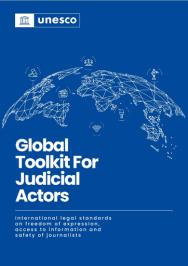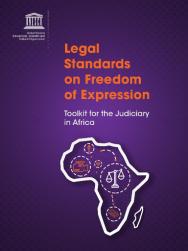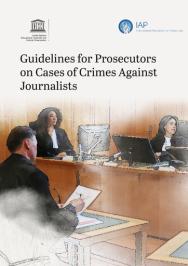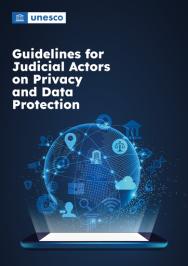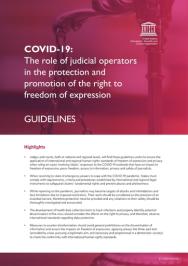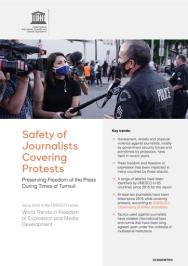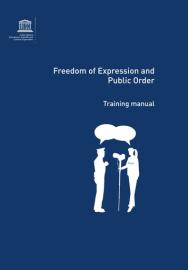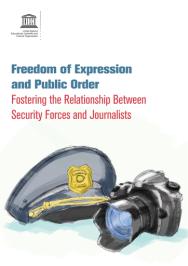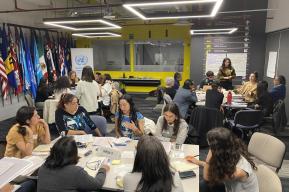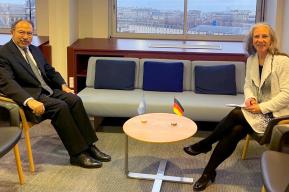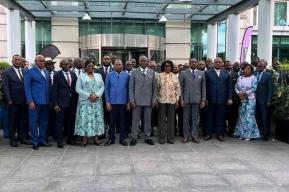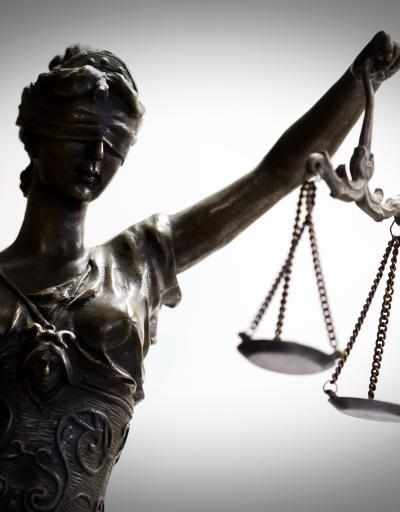
Training security forces and the judiciary on freedom of expression
Freedom of expression and safety of journalists as well as ending impunity for crimes and attacks committed against them are of vital importance to ensure the rule of law and human rights more broadly. UNESCO is therefore working with the judiciary and security forces to support their role in protecting and ensuring an environment conducive to freedom of expression, access to information and other fundamental freedoms.
As part of the activities to promote freedom of expression and the rule of law, UNESCO trains members of the judiciary (including judges, prosecutors, and lawyers) as well as law enforcement and security forces at a global scale. The primary aim is to provide these key actors with practical and theoretical tools to carry out their mission of maintaining public order and upholding the rule of law, while respecting human rights, freedom of expression and the safety of journalists.
10 years: UNESCO's Judges' Initiative
In Numbers
Our Stories
How to stop impunity for crimes against journalists
Why impunity of crimes against journalists prevails? - It is not an easy answer. But when a journalist is attacked for his or her work, not only is the journalist's individual right to freedom of expression violated, but also the collective rights of society to access information. Silencing a journalist should not only be a concern for one individual or journalistic union, it is an issue that affects society as a whole, its present and its future.
This video is also available with subtitles in Arabic, Chinese, French, Russian and Spanish.
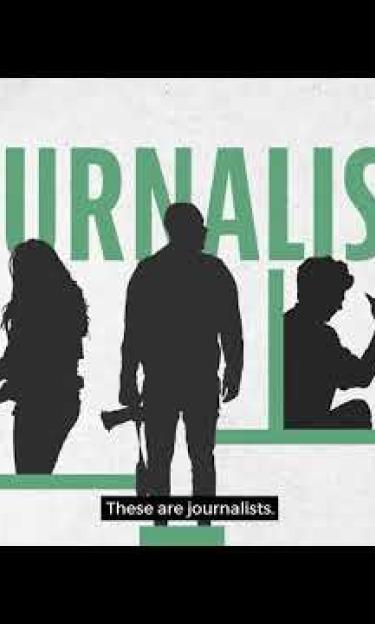
The Legitimate Limits to Freedom of Expression: the Three-Part Test
Freedom of expression is a fundamental right, indispensable in democratic societies. However, this right is not an absolute right, and may be lawfully restricted according to certain principles and conditions. Under international human rights law, and specifically, article 19 of the International Covenant on Civil and Political Rights (ICCPR), the three-part test determines whether a restriction on freedom of expression is legitimate.
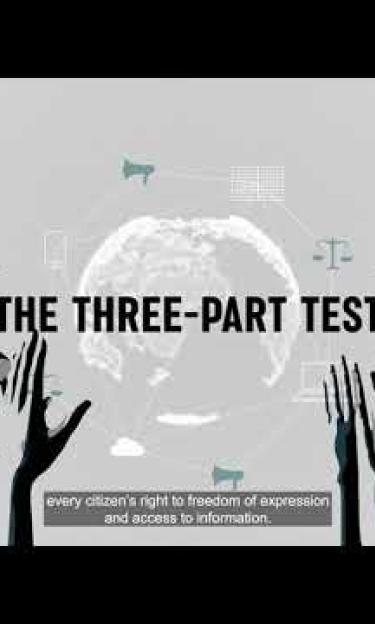
Regional training of security forces in Latin America
UNESCO, in collaboration with the Fundacion para la Libertad de Prensa (FLIP), organized a regional workshop for trainers of police academies and schools in the region. The workshop brought together more than 30 high-level officials and instructors from police training academies and schools from 13 countries, together with a dozen journalists.
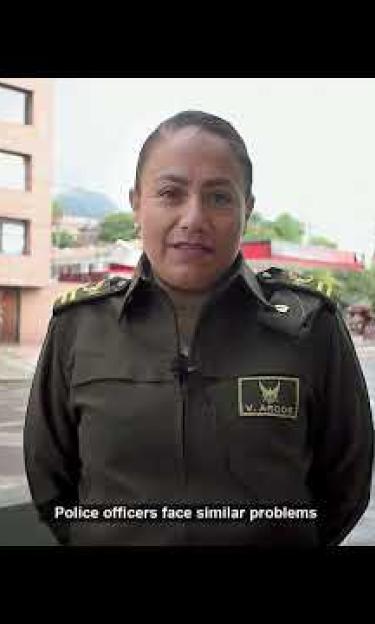
Training security forces on freedom of expression and the safety of journalists
“Training Security Forces on Freedom of Expression and the Safety of Journalists” aims at building the capacity of security forces to uphold citizens’ rights to freedom of expression and information by improving journalist safety. Its goal is to establish more professional relationships between security forces and journalists conducive to a better environment for freedom of expression for all citizens. It has already been implemented in Tunisia since 2013.
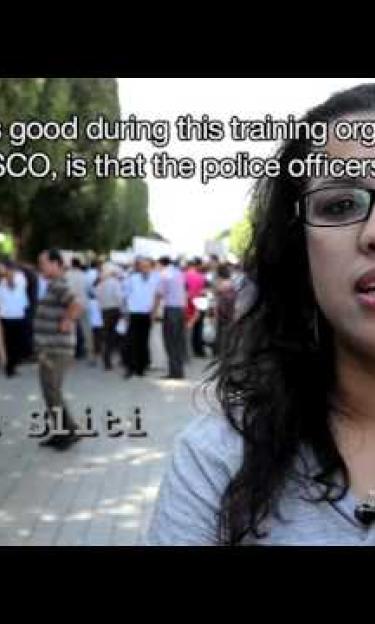
Trainings of Ukrainian law enforcement officers on safety of journalists
In the context of the project “Promoting Human Rights and the Rule of Law through Freedom of Expression and the Safety of Journalists in Ukraine”, a 3-day workshop aimed at fostering dialogue between law enforcement officers and the media follows the experience of the participating law enforcement officers and journalists and documents their reactions during and after the training and their expectations from future collaborative efforts.
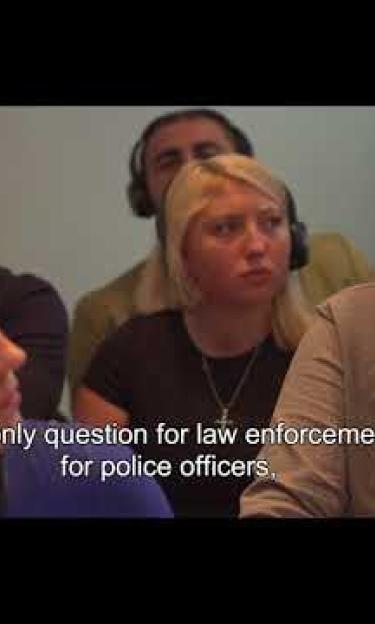
More videos
News
Our Publications
